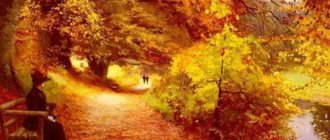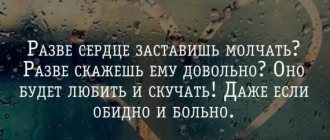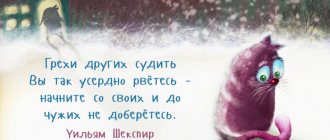Childhood and youth
The future Nobel laureate was born in September 1911 in Cornwall. The boy's father, a school head teacher, had versatile abilities: he developed and published natural science textbooks, and played excellent music on the flute, keyboards and string instruments.
William Golding
Bill's mother, a staunch feminist, suffered from mental illness - on dark evenings the woman threw knives and other dangerous objects at her son. Next to the family mansion there was an old cemetery.
William grew up lonely, anxious and complex. The boy was equally interested in literature and mathematics. At the age of 12, Golding decided that he would become a writer, but at 19, at the insistence of his parents, he began studying natural sciences at a college at Oxford University. After 2 years, the passion for linguistics won, and the young man transferred to the philological department.
William Golding in childhood and youth
Golding’s first works were poetic: the young man sought solace in poetry (fellow students, due to his “non-elite” origin, awarded Bill the humiliating nickname “not quite a gentleman”).
In his youth, Golding tried out different occupations - he staged his plays in a small London theater, worked in a clearing house and in a homeless shelter, and taught in Salisbury. However, the most powerful impression on the writer was made by his service in the navy during the war years, which deprived the future novelist of illusions about human essence.
Books
The creative legacy of William Golding, who became a professional writer only at the age of 51, consists mainly of prose of large forms. The first published and most famous novel, Lord of the Flies, originally titled The Strangers Who Came From Within, had a difficult fate. The book was rejected by publishers more than 20 times before it was published after significant editorial changes and renaming.
Writer William Golding
The work is a symbiosis of coming-of-age drama, dystopia and Robinsonade. Unlike the characters of Defoe and Jules Verne, the “civilized” heroes do not ennoble the island they find themselves on as a result of the crash, but run wild and go through a path full of hatred and enmity. It’s especially scary that all the heroes are murderers, and their victims are children.
The novel is full of metaphors: thus, the symbol of civilization is the glasses of a character named Piggy, and the embodiment of the faceless cruelty of the crowd is the paint with which the teenage islanders painted their faces. The work is now included in the school curriculum for young British people.
William Golding at his desk
It is curious that Golding himself did not like “Lord of the Flies” and was afraid to re-read the book, and most of all in his work he valued the second novel “The Heirs,” the events of which unfold in a primitive society. In the next book, Martin the Thief, the action again takes place on a piece of land surrounded by water.
According to critics, the most important works of the prose writer, in addition to Lord of the Flies, are Spire, filled with reflections on the cost of inspiration, Visible Darkness, full of biblical analogies, and the Booker Prize-winning Rituals of Swimming, and the most controversial is the novel Paper little people" and a collection of short stories "Pyramid".
William Golding receives the Nobel Prize for Literature
The novel Free Fall contains autobiographical motifs: the prototype of the character Nick Shales was the father of the prose writer, and one of the most memorable episodes is the realistically described torture of the protagonist in a prison camp.
In 1983, the writer received the Nobel Prize for Literature, and 5 years later the Queen awarded the elderly prose writer the title of knight. Golding's final novel, Double Tongue, was published after the author's death.
W. Golding. World pessimist and universal optimist. Interview [Aurora, 1990]
British writer William Golding, winner of the 1983 Nobel Prize in Literature, is best known for his first novel, Lord of the Flies, which has sold more than seven million copies in the United States alone and been translated into more than fourteen languages. In his novels, Golding explores the innate evil in man, hiding under the outer veneer of civilization, and comes to the conclusion that man is much more prone to evil than to good. This main theme of Golding often accompanies his thoughts on the problems of original sin and free will, and together they give a parable sound to his works.
Often perceived as a pessimistic writer, Golding calls himself a "world pessimist and a universal optimist", distinguishing between the world as the sum of empirical human knowledge and the universe as the totality of all things, including God and man.
On a frosty November morning, sitting in an Edmonton hotel room overlooking the North Saskatchewan Valley, Golding, whose cheerful nature deceptively juxtaposes the appearance of a prophet, gave candid answers to a number of questions, ranging from his own literary tastes and current work to his opinion of the art of storytelling, the state of contemporary novel and his latest book, Paper People.
— Although your first novel, Lord of the Flies, was not published until you were forty-three, you have already written ten novels, as well as other things, including two books of essays, a play and a book of travel essays about a trip to Egypt. How long have you been writing and how much discipline do you require of yourself when working on a novel?
— I started writing when I was seven years old, and since then I have been writing from time to time in one way or another. This continues to this day. You could say that if I'm writing and I know there's a book that I'm going to write, then I write two thousand words a day. This is a lot of pages of plain, unabridged text. I end at the end of the page or mid-sentence if necessary. Then I put down my pen, close the book and leave with a feeling of exultation - freedom, freedom! - because now I can do things that I love to do more than this routine that I have to do in a hurry. Around the end of the month, I'll finish the first draft of the novel. As long as I work, I can discipline myself to that extent. When I stop, I can’t do it at all. On the other hand, when I'm not writing, there are a lot of things I like to do, so it doesn't mean anything.
— In the essay “The Staircase and the Tree” you note that among your father’s many talents there was also a place for musical abilities. Is music one of those “things” that you switch to when you're done writing?
— Yes, my father was very musical, and music is a very large part of my life. I play the piano emotionally and imprecisely. Moreover, even at seventy-five years old, I recently played. I spent at least one year sitting on a stool in front of the piano.
— Who are your favorite composers?
— If you listen, then Beethoven, if you perform, then Liszt, Chopin and Beethoven, as well as Bach, Prokofiev and so on. If I continued listing, the list would curl into a spiral. Music is as broad as literature. In general, maybe even wider.
— Is music your strongest hobby after literature?
- Maybe.
— Considering the importance that music has in your life, should readers look for musical analogies and allusions in your books? Your novel Pyramid, which uses the sonata form, comes to mind.
— I don’t know about other novels that take the form of musical works. I'm not saying that "Pyramid" was originally intended to be a sonata, but it grew into one when I finished halfway through it. Having realized this, I began to more accurately and purposefully lead her to the sonata. So the last part about the old music teacher is really a motif with variations: it comes back in different forms.
— Your preferences in music gravitate toward great composers. Are these your preferences in literature that you extol and read with pleasure?
- Well, I have to make a confession. My life's love affair has been with the Greek language. Now I have reached the age when I clearly realized that there are some books that I may read for the last time in my life. Suddenly I decided that I couldn't accept the fact that there were books that I wouldn't be able to read again before I died. The most prominent of them is Homer's Iliad. So a month before I began my journey across your continent, I sat down and began to read the Iliad at the rate of about one book a day - although I should have been more seriously engaged in other things. This is about a thousand lines of ancient Greek. I continued reading in this manner day after day until I finished the book. I finished it on the morning of the day I left on this trip. I suppose I should therefore say that Homer is my favorite writer. After the Iliad I would name the Odyssey, then I would mention a number of plays by Euripides. As for English-language writers, I will name Shakespeare and Milton. But these are all extremely exorbitant names, and I'm afraid this makes my words too arrogant. But it just so happens that I love these huge, sweeping titans. I hope there will be time to re-read Virgil again. Perhaps also Ovid's Metamorphoses, not because the music keeps me busy again and again and never ends, but because it is an exceptional depiction of continuous change that never ends.
— As a reader, you like poets and playwrights. And as a writer, you choose primarily the field of novelist. What is your opinion as a novelist regarding the discussions that have developed around the novel, in which, on the one hand, its inevitable death is predicted, and on the other, a continuous future is predicted?
- In fact, the novel is very viable. In October 1985, at the 6th Annual Toronto International Writers Festival, I heard from countless novelists. At the festival I attended, there were about 65 of them. Judging by the way the novel is discussed in my country, I think it is in a very healthy state. Graham Greene is still writing at 82 years of age and I doubt anyone would deny the power, skill and exceptional standard of his work in terms of his finished works. There are also rising literary figures like Malcolm Bradbury, a relatively young writer who is working on the academic scene and doing, I think, brilliantly. Among these people are the older generation like Iris Murdoch and Angus Wilson, who are not quite as old as Graham Greene but are still working. I dare say that anyone who knew the scene better than I could have written quite a sufficient number of novels for it. I left this field, enough is enough, and had to leave, because I am not critical enough of my own works. People should make such decisions themselves.
— Do you follow the work of modern writers?
— To be honest, I don’t have time to read modern writers. I know it's terrible, but in general it's true. However, I don’t think they read me. I believe that if we are sincere in the pursuit of writing, we are likely to be successful in our work. I think this is very true of English writers, although perhaps not so true of French writers, who seem to read each other passionately, deeply and endlessly, and then share their impressions of who is the most magnificent. Do not misunderstand me. I have nothing against this approach, but this is not the case with English writers.
—Is there any sense of community among British writers?
- No, it’s unlikely. Perhaps half a dozen writers think that they form some kind of community, but, speaking generally, I think that English writers gravitate towards something external, and move away from each other, preferring, so to speak, to write each on your piece of paper. For a small island the situation is unusually diverse. Writers tend to see things from their own perspectives, looking largely in the same direction.
— In Canada, whose literary space is vaguely defined and called the literature of the British Commonwealth, it acquires significant significance. Are you familiar with this rich literature?
- Not with much. By chance I came across the book “The Palm Drunkard” by the Nigerian writer Amos Tutuola. It's really a wonderful thing because it's a sort of fantasy of West African mythology told in West African English, which is of course not the same as normal English. I also know the Australian Patrick White, both personally and through books, and the Indian Salman Rushdie. The strange thing about India is that the English language there is almost artificial and spreads across the surface of an area where about fifty other languages exist. The same is true for Nigeria, and even more so. I think there are 250 languages and therefore English acts as a lingua franca among the other 250. Malcolm Bradbury argued, and I don't know whether this is correct or not, that the real English of the moment is not the one spoken in England or America, or even in Canada, Australia or New Zealand. True English is one that is a second language, that is, more like the Latin of the Roman Empire, when people had their own languages and Latin to communicate. Latin, as we all know, eventually split into Spanish, Italian, French and so on. One wonders whether the imperial parallel would be legitimate with an English language breaking up, say, into North American, European, Australian, and so on? On the other hand, there is the enormous and binding influence of radio and television, which brings us back into commonality. We can say that this is a struggle between two forces: the struggle between regionalization and standardization through communications.
— Perhaps a similar tension exists in the interaction between the self-awareness of regional or national literature and international one. Sometimes it seems that there are no restrictions at all on the use of models and techniques. Anyone can write anything, in any style and form. What do you say about this?
“I wouldn’t think that the modes of storytelling, which are ultimately what the work is, would change much because the two things you mentioned are at play here.” Is not it so? There is a story and there is a reader whose attention you must hold. Today, the only way to keep his attention is for him to want to know what will happen next. This places fairly narrow restrictions on the method you should use. If a child is screaming like crazy and you sit him on your lap and say “once upon a time,” he will stop screaming. As long as you tell him a story, he will listen. Writers who neglect this fundamental technique do so at their own peril. They become what are called experimental writers, and an experimental novel is actually not really a novel. There is only one novel that is a novel: a successful novel. Experimental novels are sometimes damn clever and very rarely read. However, the story, spoken to a child sitting on a lap, is one that satisfies the curiosity we all have about what will happen next, and next, and next. This is a fundamental limitation imposed on the method of storytelling. The fundamental thing called story, history, is built into the person himself. She is who we are. Something to which we respond.
— Some critics of the novel note that it loses the traditional function of a logical and free presentation of events that meets the expectations of readers and which you characterize as an integral part of narrative art, and moves to what you call the experimental novel, an example of which is the postmodern novel with its accents on self-awareness or, for example, the very process of creating a novel. Is this happening with the novel? Do you think any other genre that also has these fundamental components of storytelling, for example, biography, can fulfill the function that the novel performed until recently?
“I think this is a huge misunderstanding.” Biography has always fulfilled this function. Robinson Crusoe is a biography, as is Tom Jones. You can take a whole series of novels, and everywhere you will be dealing with biography. The only difference between one sample and another is that sometimes it is only a partial biography, and sometimes it is a complete biography. For example, Clarissa is part biography of Clarissa and part Lovelace. In other words, she is not interested in Lovelace when he is in the cradle, although she will accompany him to the grave. So I think this distinction is not a distinction at all. No matter how you disguise novels, they are always biographies.
— Are you saying that this is not a question of genre, whether a book is about the life of a fictional character or a real person who lived among us?
- This is a matter of interest. It is interesting to know that someone “X” actually lived. When we read his biography, we know that he belonged to history. And someone “Y”, on the contrary, was created by someone. I don't think there are deeper differences here.
—You don’t think that biography is hiding in the shadow of a novel. Can you say that about another genre?
“I believe that drama can either take the place of the novel or be closely intertwined with it. It's common to turn a successful novel into a film or television series because you can heighten the drama and visual impact of the book. This, in a sense, is hiding in the shadow of the novel, and it is very interesting that this does not destroy the novel. The film works in a different way because once The Adventures of Oliver Twist is made into a TV series, people who would never dream of Dickens unless they saw him on the box will buy the book. I really feel that the novel has certain advantages and there is something so fundamental that one can even say: as long as paper lasts, so does the novel. Even if we get rid of paper, we will still have storytellers. In fact, storytellers existed before paper existed.
— In novels you often create closed worlds that exist independently of everyday reality. Can we assume that these closed worlds are intended to shed light on the real world?
- I think yes. A person wants to tell the truth, and he believes that the truth has a comprehensive meaning, and not just a specific one. Let's say you could say that "The Spire" is about the building of a spire. But, at its core, it is about creating something at all.
— Creating a novel?
“It could be about writing a novel or a play, or composing a symphony, or even carving a statue.” I hope that in this sense my books give expression to what is happening to modern man.
— Since Paper People is your most recent novel, you had the opportunity to talk about it. I would really like to hear your thoughts on “Paper People” and to know what formulations you suggested in it, talking about what is happening to modern man.
- One thing must be said firmly. Whenever readers comment on this novel, they always criticize poor academic Rick L. Tucker, who is attacked by writer Wilfred Barclay. I don't think they noticed that I was much harsher towards Barclay than I was towards Tucker. Tucker is a fool, but Barclay is an asshole. The writer receives a truly deserved punishment. This novel is not light or good-natured. Another point I would like to make is that in the book, religion matters, it is real. Let me explain in more detail. Suddenly Barclay comes to what technically religious people call a moment of confession of guilt - guilt of sin. He says, “This is divine justice without mercy.” In other words, at this moment he sees himself as he is. Therefore, in this sense, as you see, this is a very religious book. Then he thinks, “Well, I’m sinful and I’m terrible.” But gradually, sooner or later, mercy comes to him and he is freed. God appears to him in the form of this billionaire standing on the roof of the church and freeing him. Barclay then tries to free Tucker by revealing to him the meaning of both of their lives. For Tucker's sake, Barclay creates his own biography. But Tucker, eager to be a biographer himself, kills him to prevent him from burning his own papers.
“This is a delightful turn of events.” They come full circle.
- Yes, because at the beginning of the book Barclay shoots Tucker with an air gun, and at the end Tucker shoots Barclay with a rifle.
- This means that by describing his life for a biographer and including in it conclusions from their relationship, Barclay creates a combination of autobiography and biography. However, if you say that Barclay is writing his own biography, this means that for him there is no difference between the two genres.
- Yes, it is true. There is interdependence here. If you like, he writes about the Tucker-Barclay symbiosis. He allows Tucker to do with it as he wants, in order to show him what is happening that he does not know about. This act of mercy belongs purely to Barclay.
—Have you purposefully made the difference between autobiography and biography unclear?
— As I said before, every novel is a biography. But this novel is a biography that pretends to be an autobiography. Here's what you can say about him. There are no specific people behind either Tucker or Barclay. Both are anecdotal characters. Tucker is a collective image of people I knew, and Barclay is a collective image of writers.
- Do you make fun of these types of people?
- In fact, I really make fun of the literary world, both critics and writers - everyone.
— Can you tell us where your creativity can develop next and how much what you are working on now corresponds to the periodically emerging pattern of creativity that you previously described as characteristic of your work?
“I’m in extreme confusion right now.” You can proceed from this. There are about three novels that I cannot write, and one of them may reach the shore.
“But this has happened to you before, hasn’t it?” Didn't you have a relatively barren period between the release of Pyramid in 1967 and Darkness Visible in 1979?
- Yes, this has happened to me before. But on the other hand, I'm seventy-four, and one day I'll have to stop.
Interviewed by MaryLynn Scott
Translated from English by S. V. Sirotin [email protected] ru.
Personal life
William Golding looked and behaved more like a “sea wolf” than a titled writer. Even in the photo taken during the Nobel Prize presentation, the novelist looks disheveled.
"The Sea Wolf" William Golding
Those who knew Golding believed that a monster was dozing within the writer. William himself hinted at this many times - he spoke either about the attempted rape of a 15-year-old girl, or about the “killing” of a rabbit, or about the ominous secrets that would emerge when writing his biography. The writer went into binges and was terrible in anger. There are famous statements by Golding's son-in-law, who claimed that his favorite pastimes were humiliating others and psychological experiments on them.
Golding's psychological characteristics did not interfere with his stable personal life. At the age of 28, William married Ann, a chemist by profession. The novelist lived with his wife all his life and had two children - a son, David, and a daughter, Judith Diana.
William Golding and his wife Anne Brookfield
On the occasion of the writer’s 100th birthday, Golding’s heiress released a memoir, “Children of Lovers,” in which she stated that her father, contrary to established reputation, was a kind and sweet person, and quotes about vices and abused women were taken out of context. Judith Diana, however, states that the prose writer’s passion for himself, his work and his wife turned the younger members of the family into a kind of social orphans.
Death
William Golding died at the age of 82. The cause of the writer’s death completely coincided with the cause of death of his father - doctors first diagnosed both with cancer, but during remission the patients were killed by an acute heart attack.
William Golding's grave
Farewell to the writer took place in the cathedral in the town of Salisbury. The widow survived the novelist by 2 years and was buried with her husband in Bowerchok.
William Golding - quotes
If it had been light, they would have burned with shame.
But the night was growing black all around. They walked side by side - two worlds of feelings and concepts, unable to communicate.
Everyone always turns out not to be what you expect them to be.
In general, women should be arranged for marriage by someone else - they themselves are capable of hooking only crooks!
If the face changes completely depending on whether you light it from above or below, what is the face worth? And what is everything worth then?
It doesn’t matter whether you are strong or not, but honesty is honesty.
Meetings. We love them very much. Every day. At least twice a day. We're all chatting. Now I’ll blow the horn, and you’ll see - they’ll come running like little darlings. And with all honor, someone will say - let's build an airplane, or a submarine, or a TV. And after the meeting they will work for five minutes and run away or go hunting.
The boys found themselves on a desert island after a plane crash.
- Rules! - Ralph shouted - You're breaking the rules! - So what? Ralph pulled himself together. - And the fact is that, apart from the rules, we have nothing.
. there is something in common between good people and children - they should not be disappointed!
He suddenly realized how tiresome life is when you have to re-pave every path and almost always watch your walking feet.
Thoughts are a valuable thing, they are of great use.
. The human mind discovers laws everywhere and at the same time is easily deceived, like a baby.
There are expressions that read like large print, and the most prominent among them are contempt and hostility.
Shall I explain to you what is the meaning of our life? Think of a moth that lives only one day. But that raven knows something about yesterday and the day before yesterday. Raven knows what sunrise is. Perhaps he knows that tomorrow the sun will rise again. But the moth doesn’t know. Not a single moth knows what sunrise is! That's how you and I are! No, Roger, I'm not going to give you a sermon about how short our earthly lives are. We know that it is unbearably long, and yet it must be transferred. But our lives have meaning because we are both chosen ones. We are like moths. We don't know what awaits us as we climb up, foot by foot. But we must live our day from morning to evening, live every minute of it, discovering something new.
When you are afraid of someone, you hate him and think about him all the time and can’t get him out of your head.
Ralph stood and looked at him, as if dumb. For a moment it seemed like a dream - again the shore was shrouded in those strange spells of the first day. But the island burned down like dust, Simon died, and Jack. Tears flowed from Ralph's eyes and he was shaking with sobs. He will not resist them; for the first time since he found himself on this island, he gave himself free rein; spasms of grief, desperate, uncontrollable, seemed to be about to turn him inside out. The voice rose under the black smoke that covered the dying island. Infected by him, other children also became sick from crying. And, standing among them, dirty, shaggy, with an untidy nose, Ralph sobbed over his former innocence, over how dark the human soul was, over how his faithful, wise friend, nicknamed Piggy, turned over on the fly.
Source








